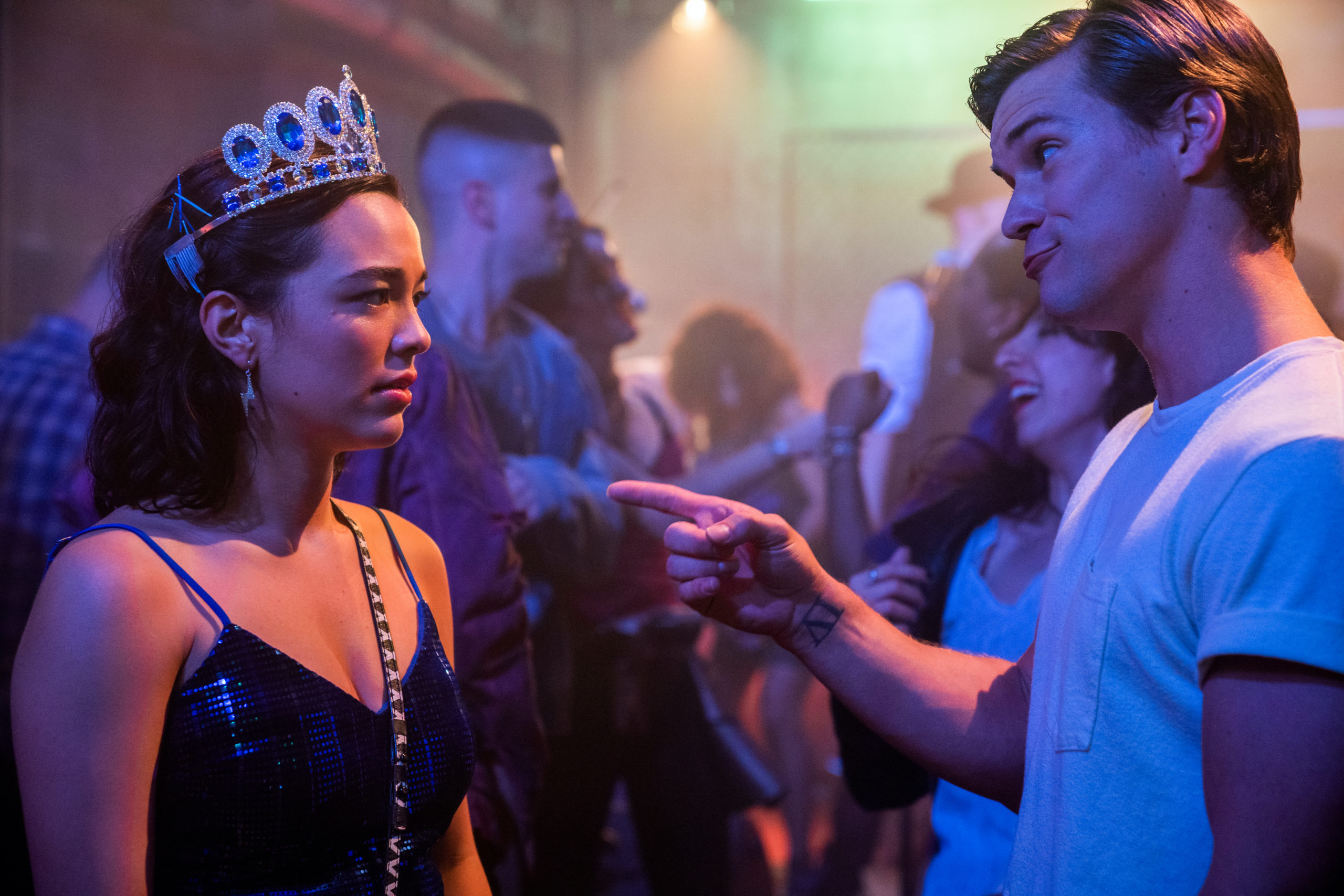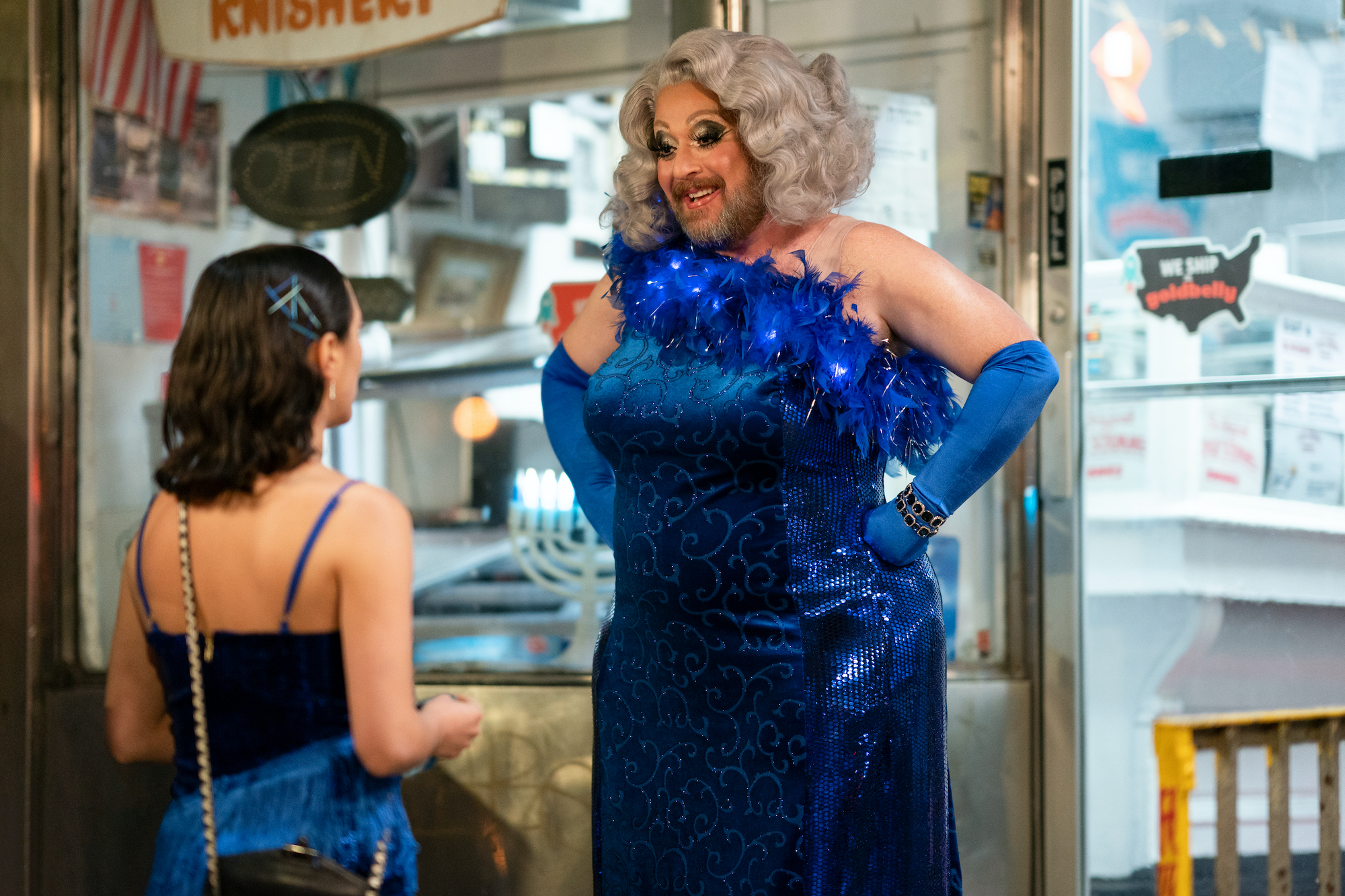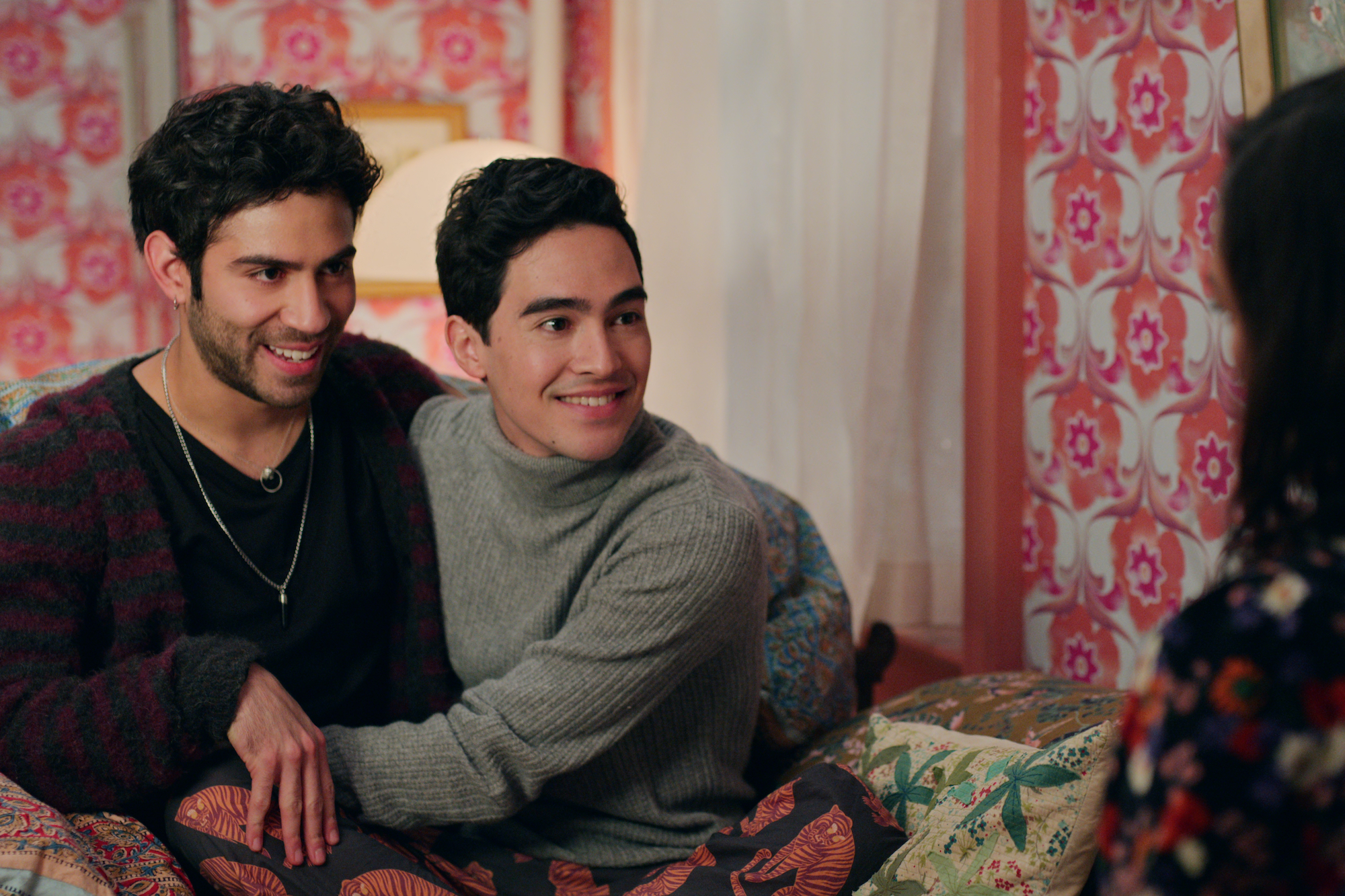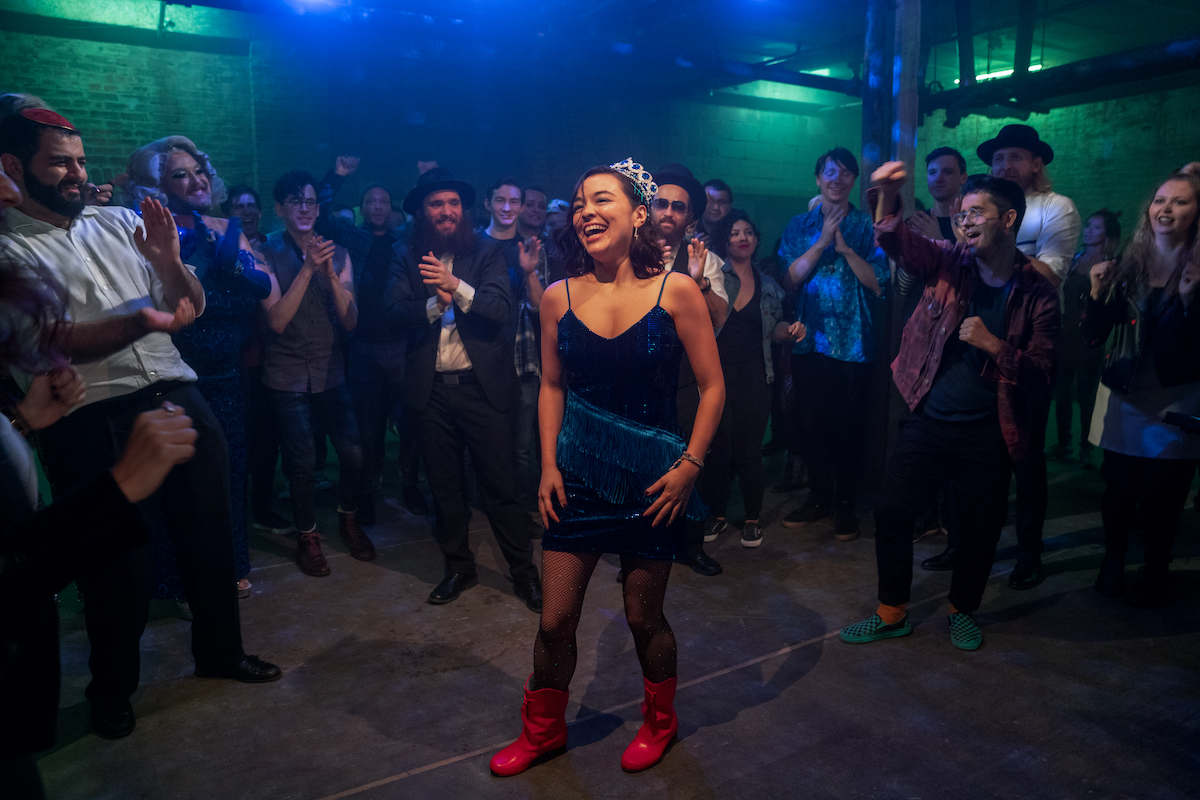I’m ambivalent about Hanukkah at the best of times. I love latkes, but to me, the holiday seems like a weird excuse for nationalistic sentiment and a cover-up for an ancient reactionary religious movement. So when my friend messaged me about a Hanukkah-themed episode of Dash & Lily, I was already suspicious.
If you haven’t seen it yet, Dash & Lily is a Christmas-themed rom-com series that recently came out on Netflix. The basic premise is that Lily (Midori Francis) and Dash (Austin Abrams) romance each other without meeting by going on a wild, wacky, and heartfelt romp through New York City while trading a red notebook back and forth as their only form of communication.

In episode three, the notebook correspondence leads Lily to a secret Hanukkah show in the basement of a Jewish bakery. Her gay friends help her pick out a dress for the night and off she goes into the unfamiliar and uncomfortable world of Jewish nightlife.
The funniest part of the episode, for me at least, was that in order to get into the party, Lily has to prove that her life is a “drag” to a Jewish drag queen bouncer. It’s not clear to me if the scene was intentionally lampooning the amazing oppression olympics we’re prone to as a people, but the experience of having to show your suffering cred to get in the door was deeply relatable.

Another one of the few highlights of the episode was that the real-life band Golem plays a punk Klezmer song about Shacharit, Mincha, and Maariv (the three Jewish daily prayer services for morning, afternoon, and evening) in the background of the party. I’ve been to this kind of party. At a Purim schpiel in Seattle a few years ago, me and every Jewish queer I knew danced until sunrise to this exact, uniquely wonderful kind of music. This song made me nostalgic for that pre-COVID bliss, and the band’s appearance was a bright spot of legible contemporary Jewish culture.
Otherwise, I’m afraid to say, Jewishness was depicted in this episode as the bland addition of “oy vey!” or “bubbeleh” to normal dialogue, or, even worse, by Jews just being generally more rude than their non-Jewish counterparts. Lily’s first five minutes at the Hanukkah party is just one long string of her bumping into people on accident and getting drinks spilled on her. Each partygoer is meaner than the last. While she meekly apologizes, they are perfect pictures of disagreeable and unforgiving Jewish New Yorkers.
Even with that heavily stereotyped characterization, you might be still be thinking, “Wow, Jewish and queer characters in a Christmas series? Great representation!” And you could be forgiven for assuming that. While I’m excited that a Klezmer rock band and a gaggle of gay Jews got a spotlight on a mainstream Netflix show, the value of representation was undermined by the other unpleasant aspects of the episode.
As far as I can tell, these Jewish people and queers are mostly set dressing for the plot of our lovebirds. Lily’s gay brother and his partner appear for only a few minutes, just to give her advice and encouragement on which fierce dress to wear to this crazy Jewish party. The drag queen bouncer vanishes after her one-liner.

In the show, queer Jewish culture becomes a place where a “normal” girl can go to confront her fear of being weird, and maybe even learn that weird can be cool. It has no content or trajectory of its own. The characters who inhabit it add no nuance to the situation. They might have their own struggles with romance or Christmas, but in this world, those struggles would only distract from the focus. Their differences from Lily are primarily aesthetic. This is the same misguided approach that many take when adding “diversity” to the mix: as aesthetically different elements who just need to be incorporated into the story but in no way should challenge our collective narrative.
As tired as all these flat portrayals of communities I belong to are, they reflect how Jewishness and queerness live in mainstream American society today. Each identity is just a slight variation on the culture’s blueprint for the default person, in this case a straight WASP. Rather than a complex being with a web of relationships, problems, and conflicting desires, they’re just flavors that add to the melting pot.
I don’t think it’s the job of a Christmas show to give us the Hanukkah content we deserve, but if Dash & Lily wanted to try, I wish they had given a little more thought to it. It could have been a genuine moment of encounter between two holidays constantly pitted against each other. It could have been a beautiful representation of the unique queer Jewish culture that’s been finding its stride in America and elsewhere.
Instead, we got another episode of a Christmas show with some vague Jewish and gay flavor thrown in — just enough promise to be disappointing.



